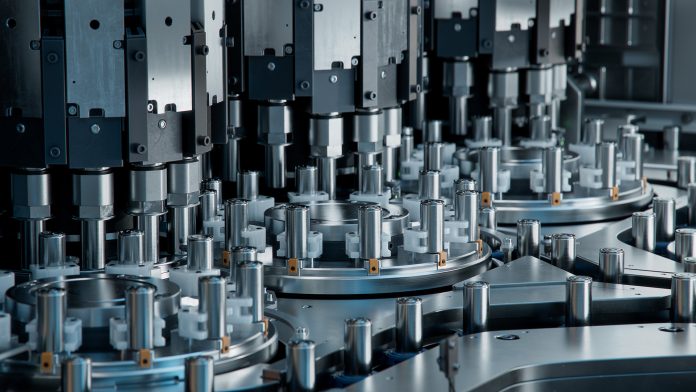The Biden-Harris Administration has announced $3.5bn from the Infrastructure Law to boost domestic battery manufacturing.
The funding, which is part of President Biden’s Investing in America agenda, will create new, retrofitted, and expanded US battery manufacturing facilities.
Administered by DOE’s Office of Manufacturing and Energy Supply Chains, the investment includes a focus on retaining and creating good paying union jobs in the manufacturing workforce.
It supports the Biden-Harris Administration’s aims to reach a net zero emissions economy by 2050, increase EV uptake, and build a domestic supply chain of critical raw materials.
US Secretary of Energy Jennifer M Granholm said: “Positioning the United States front and centre to meet the growing demand for advanced batteries is how we boost our global competitiveness, maintain and create good-paying jobs, and strengthen our clean energy economy.
“President Biden’s historic investments are giving the boost needed to build a robust domestic battery supply chain that is Made-in-America.”
The importance of battery manufacturing in the US
Batteries are vital to the transition to clean energy and are critical to national competitiveness for grid storage. As the demand for EVs and stationary storage continues to grow, the increase in the lithium battery market is expected to grow by five- to ten-fold by the end of the decade.
Because of this, it is important that the US invests in the capacity to accelerate the development of a resilient supply chain for high-capacity batteries, including non-lithium batteries.
The second phase of funding
The $3.5bn funding announcement is part of the second phase of $6bn provided by the Bipartisan Infrastructure Law.
In the first phase, 15 projects that are catalysing over $5.8bn in public and private investment were awarded funding by DOE.
The second phase will boost US battery manufacturing to support the transition to clean energy by:
- Ensuring the US has a competitive battery materials processing industry;
- Boosting the US’ battery manufacturing capabilities;
- Reducing the US’ reliance on critical minerals and battery materials from foreign entities of concern;
- Advancing the domestic processing capacity of necessary minerals;
- Supporting the goal that 40% of the overall benefits of federal investments flow to overburdened communities; and
- Providing job opportunities to low- and moderate- income communities.
The second phase will prioritise American workers, promoting collective bargaining agreements and projects that create a high-wage production workforce.
Prioritising next-generation battery technologies
DOE is now prioritising next-generation battery chemistries as well as lithium-based technologies. Other new focus areas include precursor production and manufacturing for specialised duty markets.
US battery manufacturing projects that expand production facilities for cathode and anode materials are also required.









